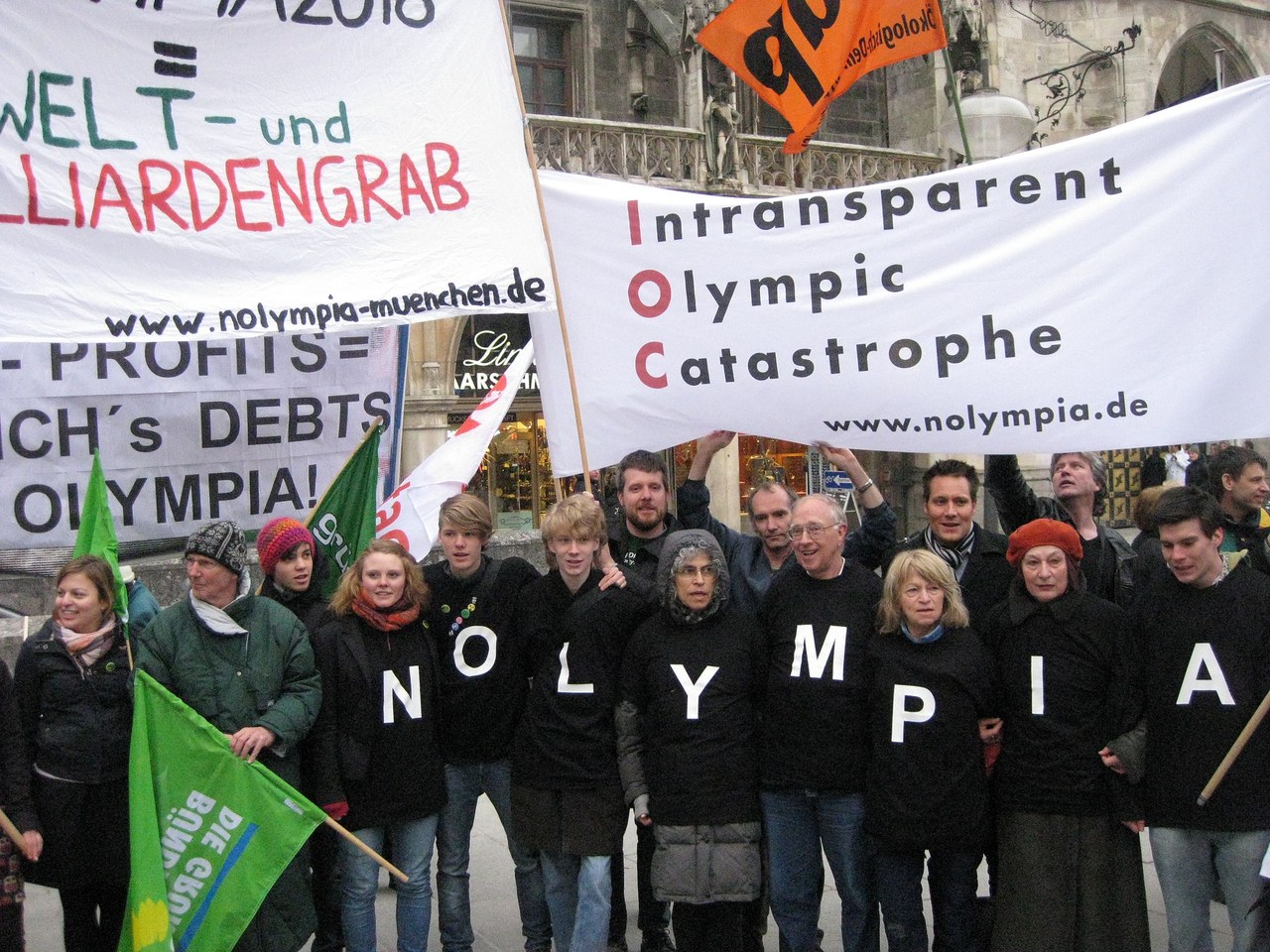Media releases
Why Sochi is not in the Alps

The Winter Olympics are set to get underway in Sochi on 7 February 2014. This also marks an expansion of the winter sports market to include the subtropical Black Sea coast. And it makes an absolute mockery of democracy – under the watchful eyes of the international community.
Had Salzburg’s candidacy not failed at the time with the International Olympic Committee (IOC), the Games could have taken place in the Alps. Was it because the Austrian city had submitted the smallest budget of all the candidates? As with many other aspects relating to the IOC, one can only speculate about the decision-making criteria. The electorates of Graubünden/CH and Bavaria/D also decided to give the 2022 Winter Olympics short shrift. “Too much democracy,” is how Pat Cortina, head coach of Germany’s national ice hockey team, commented on the outcome. So much for “fairness in sport”.
Oppressive IOC contracts
The people who live in the Alps can count themselves lucky that the decade is to be Olympics-free. CIPRA has reappraised the experiences gained over recent years. All the relevant information can be found on the www.cipra.org/en/olympics website.
With the IOC’s regulations and contractual conditions as they currently stand, staging the Winter Olympics in the Alps is no longer a responsible undertaking. The IOC’s procedures are opaque and undemocratic. And with its Host City Contracts the IOC deprives local communities of any say in the matter. The IOC refuses to issue any binding commitments that it will not change the decision-making criteria that provided the mainstay for any referendum. The Host City Contract, which runs to more than 60 pages, has a mere eight lines on the subject of sustainability and the environment.
Climate change deniers
So far no candidacy has taken account of the impact of climate change. Those in charge, the IOC officials and the officials of the candidate resorts choose to ignore the fact that temperatures will continue to rise. If half-decent snow is to be guaranteed, they will have to use increasingly powerful equipment to generate it artificially. This will have an even greater impact on the landscape and consume even more energy and water.
Who needs to adapt?
From a taxpayer’s point of view, the Olympic Games would fail any honest cost-benefit calculation on all counts. There is not a single study capable of demonstrating that the Games have had a lasting positive economic impact. On the contrary, experience shows that the Olympics are more of a flash in the pan. With winter sports, the Olympics are backing the wrong market, unilaterally publicising and prioritising destinations that are already well known. Peripheral regions are left with debts and ruins, as was the case for example with the Italian valleys of Susa and Chisona after “Turin 2006”.
The Winter Olympics have become increasingly bloated and feature more and more events, a clear indication that mountain regions and Alpine valleys would be overwhelmed by the Games – with fatal consequences. During the candidacy for “Munich 2018”, land owners were pressurised to make their land available.
There are two options – either the Olympics adapt to conditions on the ground and the needs of the local population. Or we adapt to the model required by the Olympics – and completely ignore fairness and democracy, like for example the former German alpine skier Markus Wasmeier: “As for the political situation [in Sochi], lots of people were also dispossessed in Beijing. It’s not pretty, but that’s the way it is. Once the Games get underway, no-one will notice any of it.”
For all enquiries please contact:
Dominik Siegrist, President CIPRA International +41 79 673 43 30, eMail
Claire Simon, Director CIPRA International +423 237 53 53, eMail
Barbara Wülser, PR Manager CIPRA International, +423 237 53 11, eMail
| Type | Title |
|---|---|

|
Press release, 29.1.2014 |

